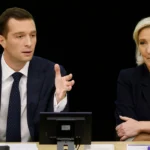The Munich Security Conference (MSC) concluded on Sunday. This 60th edition brought together world leaders. Discussions focused on the situation in the Middle East, the Rafah offensive and the war in Ukraine.
On the last day, which concluded three days of debates on geopolitical issues, the head of European diplomacy Josep Borrell said that the most important geopolitical questions facing the European Union today are linked to Ukraine, Gaza and southern countries, as well as for defense.
Concerning Ukraine, he also warned that “for the first time in our history, we must provide weapons to a country at war” and that “this requires us to work together, faster and better”.
“Perhaps we hesitated too much, too often. Two years ago we were ready to give away helmets. Today we are giving F-16s, but two years later (…) If we had made this decision earlier, perhaps the war would have been different. ” He added.
Josep Borrell also spoke about the situation in the occupied West Bank, stressing that violence perpetrated by Jewish settlers against Palestinians has been increasing since October 7.
Several Western countries, including the United States, the United Kingdom and France, have imposed sanctions against certain Israeli settlers deemed “extremist”, in particular by freezing their assets. Since October 7, NGOs have reported dozens of illegal settlements.
For Josep Borrell, the situation in the occupied West Bank constitutes a real obstacle to the two-state solution.
On the subject of the Gaza Strip, the head of European diplomacy reiterated his concerns about an offensive by the Israeli army in Rafah, where more than a million people are massed.
He also said: “Without a clear perspective for the Palestinian people, there will be no peace in the Middle East and Israel’s security will not be ensured by military means alone. »
This article is originally published on observatoiredeleurope.com






